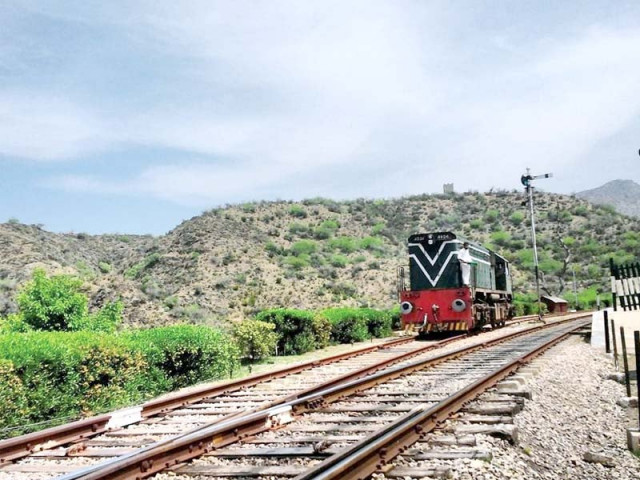Pakistan Railways asked to adopt state-of-the-art technology
LCCI calls for revamping outdated system to stave off accidents

LCCI calls for revamping outdated system to stave off accidents. PHOTO: HIDAYAT KHAN/EXPRESS
In a statement on Friday, LCCI President Abdul Basit said repeated accidents and loss of human lives necessitated the revamping of the outdated system of Pakistan Railways.
In the latest incident on Thursday, a long-distance train collided with stationary coaches in Karachi that left 22 people dead and 65 injured.
Pakistan Railways suffers another loss-making year
Pakistan Railways is one of the largest institutions of the country as it is the most important source of passenger and industrial goods movement.
It is estimated that annually over 65 million passengers travel through the railways while petroleum products, wheat, coal, fertilisers, cement, sugar and thousands of other goods are also distributed through its network.
But despite its importance, Pakistan Railways is far behind as far as latest technologies are concerned.
“No doubt the government has given serious consideration to this important department and the situation is far better than the past but still a lot of work needs to be done,” Basit said.
He urged Federal Railways Minister Khawaja Saad Rafique to adopt latest technologies for Pakistan Railways that would not only stop accidents but would also encourage local and foreign investment.
He said the staff concerned should be given full training for managing things in a better way.
Pakistan Railways re-launches e-tickets for online booking
The government has framed a plan to upgrade and expand the railway infrastructure with Beijing’s assistance under the $46-billion China-Pakistan Economic Corridor (CPEC) programme.
China has agreed to provide $5.5 billion in a concessionary loan for the expansion and renovation of a main rail link (Peshawar-Karachi) that connects Pakistan’s north to south as part of its investment under CPEC.
Basit suggested forming a think tank comprising top-notch private sector representatives and parliamentarians to devise a framework for turning important institutions like Pakistan Railways into profitable and efficient public sector enterprises.
The think tank should be tasked with drawing up proposals including a methodology for rightsizing of the railways that had grown out of proportion due to various reasons, he said.
Currently, the PR is operating 104 passenger trains, of which only 42 express trains generate profits. These long-distance trains, mainly operating on the Main Line One, generated around Rs17.45 billion out of total passenger train earnings of Rs20.39 billion for 2015-16.
The remaining 62 trains, which consist of mail-express trains, intercity and other passenger trains, have failed to add sufficient funds to the railway account. These trains earned Rs3.16 billion in the last fiscal year, but their operating expenses or variable costs were recorded at around Rs4.91 billion, resulting in a loss of Rs1.75 billion.
Published in The Express Tribune, November 5th, 2016.
Like Business on Facebook, follow @TribuneBiz on Twitter to stay informed and join in the conversation.


















COMMENTS
Comments are moderated and generally will be posted if they are on-topic and not abusive.
For more information, please see our Comments FAQ